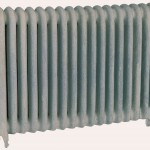 The cost of heating homes in Britain is now 63 per cent, or £227 higher, than it was five years ago.
The cost of heating homes in Britain is now 63 per cent, or £227 higher, than it was five years ago.
According to analysis from comparison website uSwitch.com, heating a home now costs £587 a year, compared to £360 five years ago.
Five of Britain’s big six energy suppliers are hiking their prices ahead of Christmas, and with the winter temperature set to plummet, consumers will soon be left bearing the brunt of rocketing energy prices, warns uSwitch.com.
The average household energy bill is now £1,334 a year, the survey found, with heating accounting for almost half (44 per cent) of this.
However, households could reduce the amount they spend on heating by up to 21 per cent or £123 a year, just by moving to a more competitive energy plan. The cheapest tariff on the market costs £1,054 a year on average, meaning that customers would pay £464 a year for their heating compared to £587 a year for those on a typical standard tariff.
Ann Robinson, Director of Consumer Policy at uSwitch.com, says: “It now costs households a staggering 63 per cent more a year to heat their home than it did five years ago. This increase has knocked consumers for six, leaving many fearful of how they will afford to keep warm during the winter months and leading to growing numbers rationing their energy use even during the harshest weather.
“Recent price hikes from energy suppliers will add £753 million onto energy bills and push 314,000 households into fuel poverty. Many households will feel that they have little choice but to turn their heating down or off, and by doing so risk gambling with their health. Three-quarters (75 per cent) went without heating at some point last year, and with price hikes pushing bills even higher this figure is likely to rise.
“However, consumers can reduce the amount they spend on heating, without compromising their wellbeing or qualify of life. There are many low-cost or free insulation offers available that will make homes more energy efficient and there is currently over £300 difference between the cheapest and most expensive energy tariffs on the market. These two steps will reduce the amount of energy we use and the amount we pay for it and are our best defence against the high cost of energy today.”



